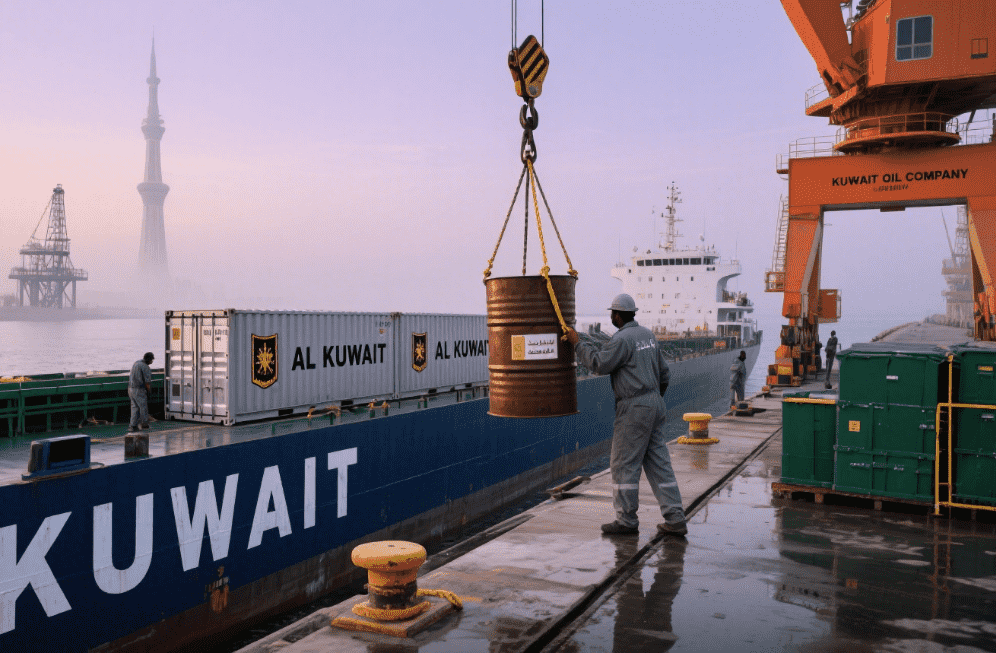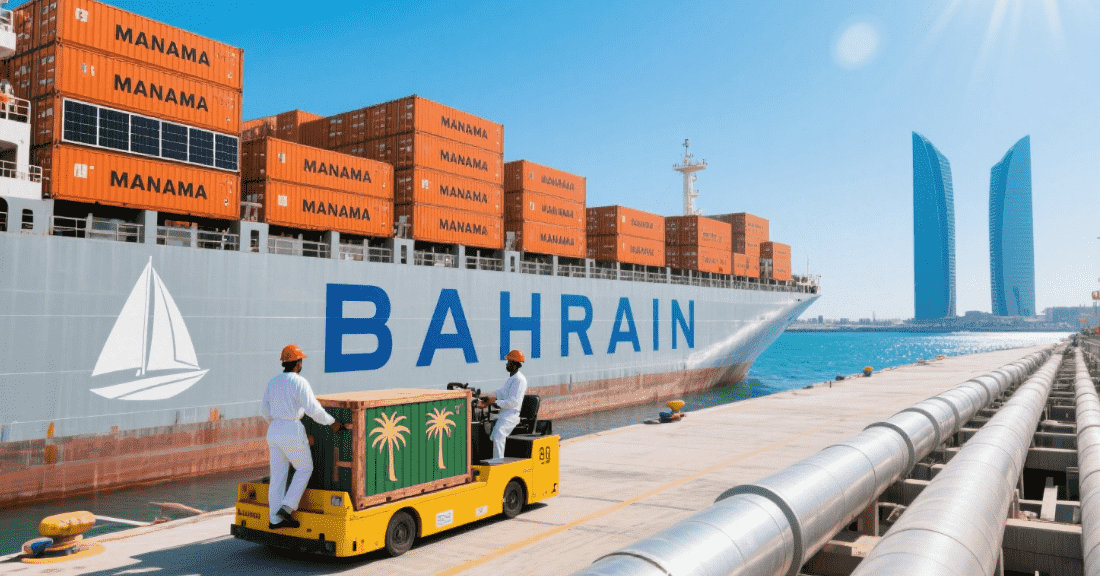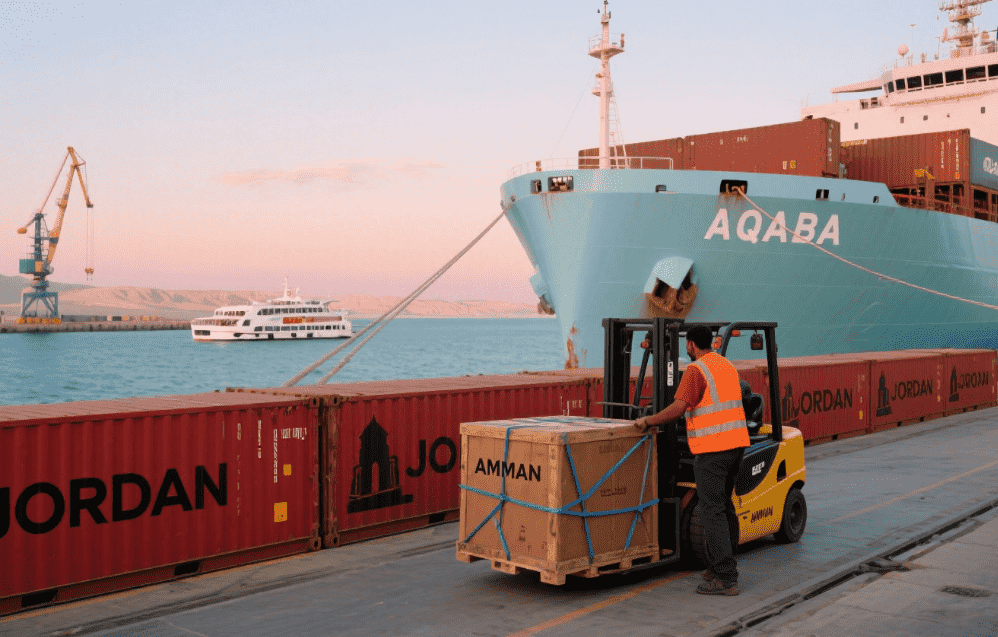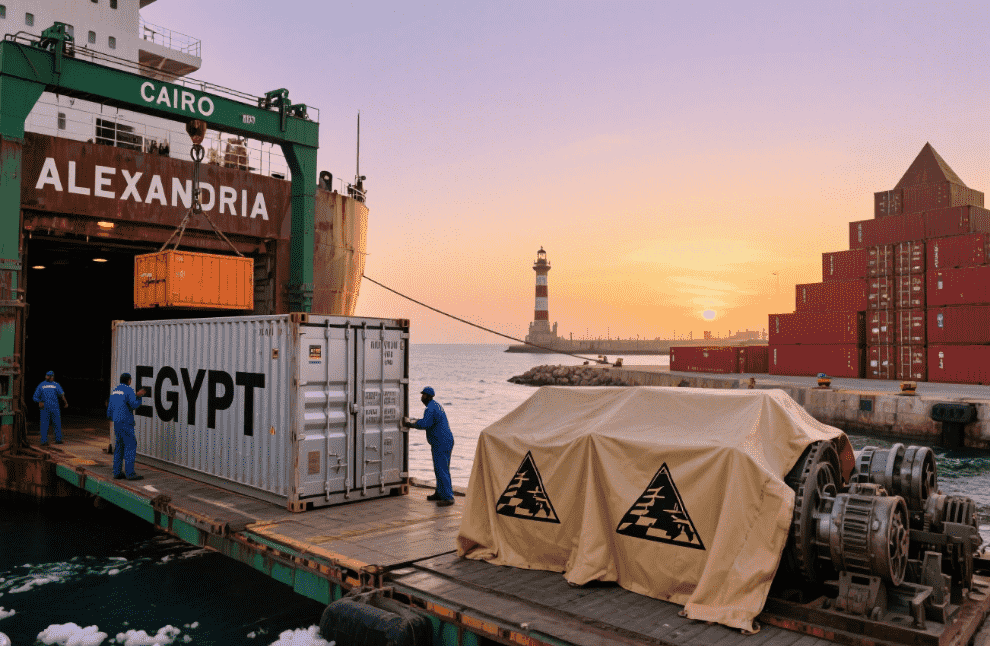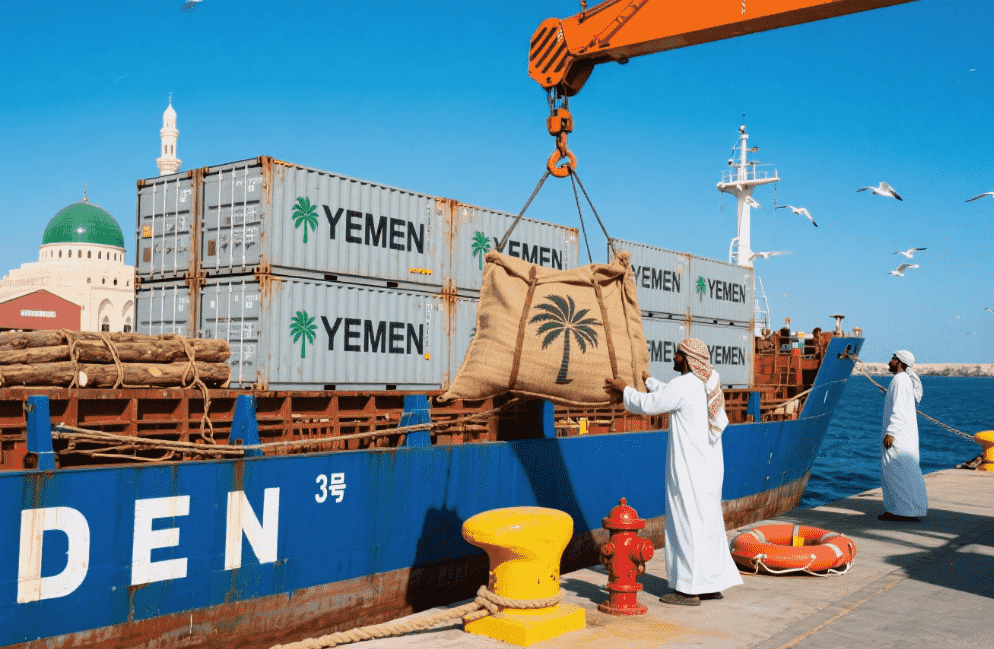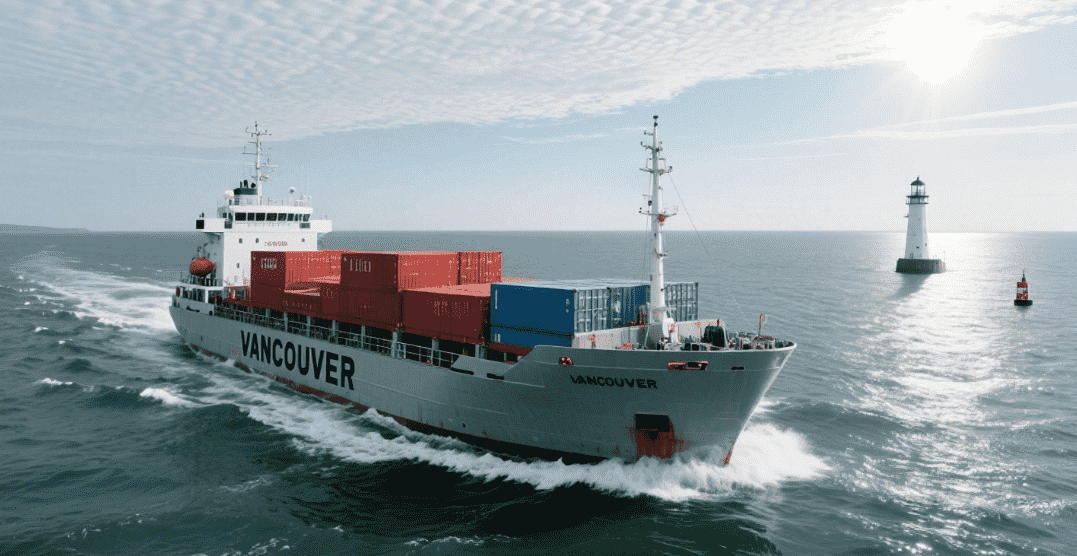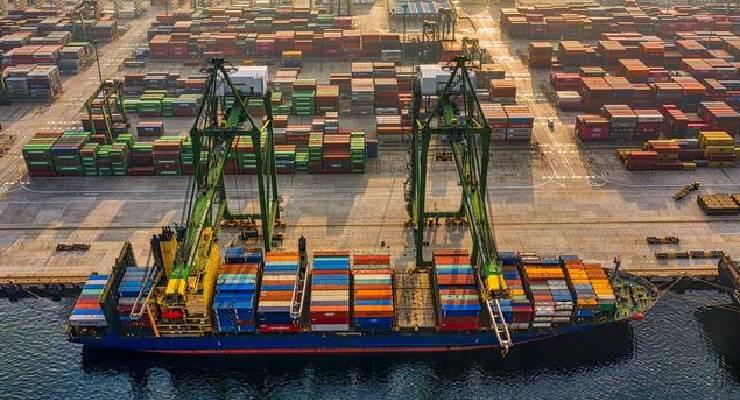
Shipping from China to Nigeria involves various factors that affect the overall cost, time, and efficiency of the process. These factors include the choice of shipping mode, the volume and type of goods being transported, and the destination port in Nigeria. Super International offers a wide range of shipping solutions to meet your specific needs and budget, including air freight, sea freight, and door-to-door delivery.
Cargo shipping from China to the Nigeria
Looking to ship goods from China to the Nigeria? You have two straightforward options:
· By Sea
· By Air
China and the Nigeria enjoy strong connections with regular flights and shipping services that handle both passengers and freight. As China cements its role as a global manufacturing powerhouse and the Nigeria sees a boom in its urban middle-class population, these links are only getting stronger. Stay tuned as we dive deeper into these transport methods later on.
How to Import your shipment To Nigeria From China ?
Step-by-Step Guide for Shipping from China to the Nigeria
Step 1: Select Your Shipping Method
Determine the right balance between speed and cost. Choose sea freight for savings, or air freight for faster delivery.
Step 2: Find a Reliable Freight Forwarder Super International Shipping
Partner with a trusted expert like Super International Shipping for peace of mind.
Step 3: Secure Packing & Documentation
Ensure your items are packed safely and all documents are in order for a worry-free shipment.
Step 4: Clear Customs with Ease
Navigate customs clearance smoothly in both China and Nigeria with proper preparation,
Ensuring Proper Cargo Insurance and Loading Supervision
Step 5: Track Your Delivery
Stay updated with real-time online tracking to know exactly where your shipment is at all times.
Step 6: Shipping Costs
Understand and fulfill your financial obligations according to the agreed terms.
Step 7: Final Reception
Be on standby to inspect and receive your goods once they land in the Nigeria.
Super International Shipping is Your Your Best Freight Forwarder from China to the Nigeria
Selecting a reliable logistics partner is key to a smooth import process when shipping goods from China to the Nigeria. The right freight forwarder can expertly steer all stages of the shipping journey, from supplier selection, through customs, to your doorstep.
So, what should be your checklist when choosing a logistics partner for shipping from China to the Nigeria?
1. Proven experience and expertise in managing shipments for this specific route.
2. Comprehensive service offerings, including both air freight and sea freight options.
3. Door-to-door delivery service for maximum convenience.
4. Customs clearance know-how to smoothly navigate potential roadblocks.
5. Competitive pricing that aligns with your budget.
6. Online tracking system providing real-time updates on your shipments.
By choosing a reputable logistics company, you’re ensuring efficient and secure handling of your shipments. This not only saves you valuable time but also significantly optimizes your costs in the long haul.
Shipping from China to the Nigeria – Transit time Overview by Various Transport Methods
When considering shipping goods from China to the Nigeria, the primary options at your disposal are air freight and sea freight. Each method presents its own set of advantages and limitations, and the ideal selection is contingent upon the nature of your cargo and your time constraints. Here is the breakdown in each shipping methods
|
Shipping Option |
Transit Time |
|
Sea Shipping (FCL & LCL) |
35-45 days |
|
5-7 days |
|
|
Express Shipping |
3-5 days |
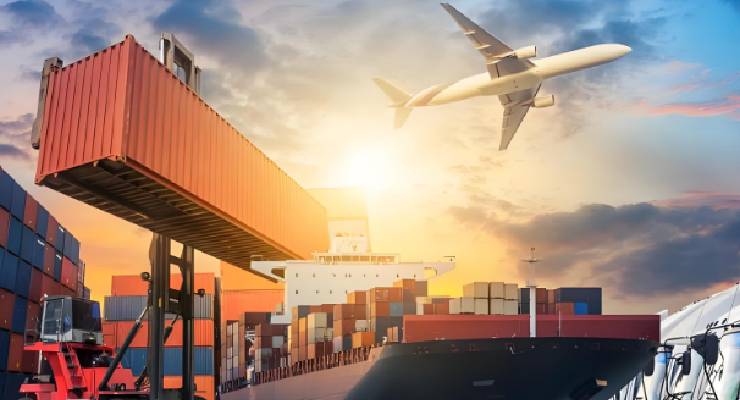
Air Freight
Air freight is the fastest way to transport goods from China to Nigeria, with delivery times typically ranging from 5-7 days. This mode of shipping is ideal for time-sensitive cargo or items with a short shelf life. However, air freight can be more expensive than other shipping options, particularly for heavy or bulky items.
Sea Freight & Container Shipping
Sea freight is a cost-effective option for shipping larger volumes of goods from China to Nigeria, with transit times typically ranging from 35-45 days. This mode of shipping is suitable for non-perishable items and those that do not require urgent delivery. Sea freight involves the use of containers, which come in standard sizes of 20 feet and 40 feet.
Full Container Load (FCL) Shipping
FCL shipping is the most affordable option for larger shipments, as you will be required to book an entire container (either 20ft or 40ft) for your goods. This option is ideal for businesses shipping large quantities of goods, as it offers better economies of scale.
Less than a Container Load (LCL) Shipping
LCL shipping allows you to pay only for the space your goods occupy within a container, making it an ideal choice for small businesses and individuals shipping smaller quantities of goods. In LCL shipping, a freight forwarder will consolidate multiple shipments into one container, which is then shipped to Nigeria.
Tailored Door to Door Shipping Solutions: From Pickup to Final Delivery
Door to door shipping is all about ease and convenience. Imagine your package being collected right from the source – whether it’s a factory or warehouse – and delivered straight to your doorstep. With this service, the headache of coordinating with multiple agencies is eliminated.
Our team at Super International Shipping takes care of everything: from arranging the shipment, handling customs clearance, to ensuring safe delivery. And the best part? We offer this comprehensive service at a budget-friendly rate. Say goodbye to the complexities of importing and enjoy a seamless experience with us.
DDP Shipping
DDP Shipping provides a seamless service of collecting your merchandise from the supplier in China and delivering it straight to your doorstep in Nigeria. This method alleviates the burden of managing customs clearance and organizing transportation, ensuring a smooth and effortless shipping experience
Shipping Cost from China to Nigeria in Comprehensive Guide
The cost of shipping goods from China to the Nigeria can vary based on several factors. These include the mode of transport, the weight and volume of your shipment, and the origin and destination points. Additional services, like customs clearance or door-to-door delivery, can also influence the final cost.
|
Shipping Method |
Cost of Shipping |
|
Sea Shipping (20ft Container) |
USD 3300 – USD5000 for a 20ft container |
|
Sea Shipping (40ft Container) |
USD 5200 – USD7650 for a 40ft container |
|
LCL Sea Shipping |
USD 15 per cubic meter (CBM) |
|
Door-to-door DDP Shipping |
USD 250 per CBM or about USD 4 per kilo |
|
Air Shipping |
USD 4 – 5 per kilo (higher than sea DDP) |
|
Express Shipping |
USD 5.6 per kilo |
Sea Freight Shipping Costs
Sea freight rates for shipping a 20ft container from China to Nigeria range from USD8,000, while rates for a 40ft container range from USD14,000.
Air Freight Shipping Costs
Air freight shipping costs depend on the departure city, destination airport, and the weight and volume of the shipment. Prices per kilogram typically range from USD 9.5 per kg depending on the specific air cargo carrier and route.
Transit Times from China to Nigeria
If you’re planning to ship goods from China to Nigeria, it’s important to have an idea of the transit times. The transit times can vary depending on the mode of transport and the specific shipping route. To help you plan your shipment, we’ve put together a table of the transit times for sea freight from various locations in China to Lagos, Tincan and Apapa in Nigeria.
Sea Freight Transit Times
Sea freight transit times from China to Nigeria typically range from 35 to 45 days, depending on the departure and destination ports and the shipping rout
Sea freight transit times from China to Nigeria typically range from 35 to 45 days, depending on the departure and destination ports and the shipping route.
Air Freight Transit Times
Air freight transit times from China to Nigeria are much faster, usually taking between 5-7 business days. However, these times may vary depending on seasonal demands and traffic in the freight market.
What is the Cheapest Shipping Method from China to the Nigeria?
Sea freight stands out as the most economical option for transporting goods from China to the Nigeria.
There are a few key reasons why sea freight typically costs less than air or rail shipping:
Sea freight offers extensive routing options due to the vast network of ports. For instance, one of the busiest ports in China is Shanghai. In the Nigeria, the Port of Manila is a primary hub for incoming shipments. Selecting a departure or arrival port that is geographically closer to your final destination can result in lower shipping costs.
Additionally, sea freight can accommodate larger volumes of cargo. The bigger your shipment, the more cost-efficient it becomes to ship by sea on a per-unit basis. This is because sea vessels have fewer limitations regarding the types and sizes of items they can carry, as well as the space available within shipping containers.
What is the Fastest Way of Shipping from China to the Nigeria?
Air freight is the champion When speed is the top priority for shipping from China to the Nigeria.. It’s the optimal choice for swift delivery of smaller, time-sensitive shipments. Although it may come at a premium cost, air freight offers unmatched expediency when timely arrival is crucial.
Comparing Express Shipping Option : FedEx, DHL, UPS, TNT, EMS, and Alibaba Shipping Costs From China to the Nigeria
Choose FedEx when speed is key. Delivering from China to the Nigeria in 2-3 days, they may charge more but prioritize safety and speed. They handle all paperwork and customs, perfect for parcels under 200 kg or 1 CBM.
DHL ranks high in popularity, offering global delivery in 3-5 days. Though costs are up there, their reliable service justifies the price.
UPS brings American efficiency worldwide. They join forces with local services to ensure delivery even in places they don’t directly serve. UPS is a go-to in both China and the Nigeria.
TNT matches the competition in service and cost, focusing on customer satisfaction. They’re a solid choice for shipping between the two countries.
EMS is the budget-friendly option. State-owned, it’s less expensive but slower. If you’re not in a rush, EMS is your economical choice.
Standard Express offers a balance of cost and speed, ideal for shipments around China. They guarantee prompt delivery, including door-to-door service.
For Alibaba shipments, connect with trustworthy manufacturers, then let a dependable forwarder like Super International Shipping take it from there.
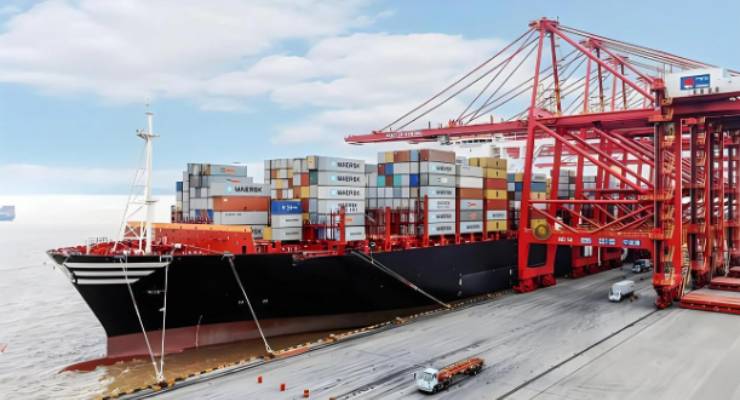
Customs Clearance Requirements for Shipping from China to Nigeria
When shipping from China to Nigeria, it’s essential to be familiar with Nigeria’s import regulations and documentation requirements. This knowledge will help you ensure that your shipments comply with all necessary laws and regulations, avoiding delays and additional costs.
Import Regulations
Nigeria has specific import regulations in place to control the entry of goods into the country. It is essential to ensure that your goods are allowed for importation or if they require a license or other special permits. Some items, such as weapons and narcotics, are prohibited from importation, while others may be subject to restrictions or additional requirements.
Required Documentation
SONCAP Certification
The Nigerian government mandates specific documentation for regulated consignments, with the SONCAP (Standards Organization of Nigeria Conformity Assessment Program) Certification being crucial.
Product Certificate Issued by Cotecna
The Certificate of Conformity (COC) is issued by Cotecna and is necessary for importing goods. To obtain this certificate, importers first need a Product Certificate to open Form M, which declares the goods in the shipment. There are three types of Product Certificates:
1. Unregistered/Unlicensed Products:
Suitable for importers who import infrequently.
2. Registered Products:
For frequent importers or manufacturers. Requires proof of consistent product quality over time.
3. Licensed Products:
For regular importers with a proven record of compliance in quality standards.
CCVO
The Combined Certificate of Value and Origin (CCVO) is a vital document used by the Nigerian Customs Service. It confirms the origin and value of the cargo, which is necessary for assessing customs duty. The CCVO is mandatory for clearing goods at Nigerian seaports and airports.
Customs Duty in Nigeria
Importing goods into Nigeria comes with significant costs, with customs duty being one of the most important. Prospective importers should budget for customs clearance fees when their cargo arrives. The exact cost can vary, but a clearing agent can provide an accurate estimate.
Documentation is a crucial aspect of the import process. Some of the required documents for importing goods into Nigeria include:
· Form M: A mandatory document for all importers, used to declare their intention to import goods into Nigeria
· Product Certificate: Issued by an approved certification body, this document verifies that the imported goods meet the required standards and regulations
· Combined Certificate of Value and Origin (CCVO): Required by the Nigerian Customs Service to validate and assess imported cargo for duty charges
· Bill of Lading: A document issued by the carrier, detailing the goods being shipped, their origin, and their destination
It is essential to work with a reliable freight forwarder, such as Super International, to ensure that all documentation is completed accurately and in a timely manner.
Understanding Import Duty in Nigeria
In Nigeria, the import duty is set at 7.5% of the value of the imported goods. This rate is specified under the Law of the Federal Republic of Nigeria. This 7.5% tax is applied as Value Added Tax (VAT) and is additional to other costs such as CIF (Cost, Insurance, and Freight), CISS (Comprehensive Import Supervision Scheme), ETLS (ECOWAS Trade Liberalization Scheme), and any applicable surcharges.
You may also be interested in:
Air Shipment from Shanghai, China to Lagos, Nigeria
Shipping Time from China to Nigeria
Ocean freight service GARBAGE CHUTE SYSTEM from
OCT How to import from China to Nigeria?
Conclusion
In conclusion, shipping from China to Nigeria is a critical aspect of international trade for both countries. By understanding the various shipping methods, costs, customs procedures, and other factors involved in this trade route, businesses and individuals can make informed decisions and successfully navigate the complexities of shipping from China to Nigeria.


